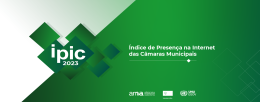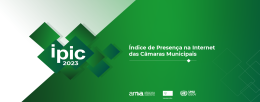The integrated project on developing frameworks for governance and e-participation mechanisms for respective government entities in responding to beneficiary feedback, in addition to creating a framework for the efficiency and quality of the individual portals' content index, constitutes three independent but interrelated projects due to significant overlaps but with differentiated deliverables.
The integrated project aligns with the Vision 2030 policy document of the Kingdom of Saudi Arabia (KSA hereafter), which has five sub-policies. The integrated project falls in the fourth sub-policy, beneficiary-centricism, which aims to increase e-participatory practices and incorporate user feedback in public decision-making processes and accessibility.
The integrated project entails three different but interrelated projects, namely Project A, Project B and Project C.
Project A is about designing and implementing a strategic governance layer and framing operational mechanisms for beneficiary-centric sub-policy by building a theory-based strategic governance framework and an operating mechanism for stakeholder engagement.
Project B is about assessing the current regulatory framework of the KSA with a particular gap analysis of the regulatory framework on beneficiary-centric sub-policy.
Project C is about developing a framework for the efficiency and quality of the government websites and portals' content index.
Beneficiary
The beneficiary for this project is the Digital Government Authority (the DGA hereafter) of the KSA. The government of the KSA has announced the Vision 2030 policy document, which has several goals. One of the respective goals is to increase the country's ranking in digital government indices. Thus, strategically, the Kingdom wishes to aim to enhance the efficiency and effectiveness of the government among others. Therefore, this integrated project has strong links with some of the Vision 2030 objectives, ranging from ensuring government entities response to customers' feedback (Objective 22) and improving the quality of services provided to citizens (Objective 14) to developing e-government (Objective 23) and strengthening the communication channels with citizens and business community (Objective 34).
With this project, UNU-EGOV, through a partnership with the consulting firm Kaizen, aims to provide the beneficiary with comprehensive frameworks for;
a) a strategic governance mechanism for handling beneficiary feedback to improve the design of public policies and the provision of public services,
b) an operating e-participation mechanism at the entity level for incorporating the public in public decision-making processes
c) a gap analysis of the current regulatory framework in the Kingdom and
d) an evaluative framework for the government websites.
Objectives
UNU-EGOV mainly provides its expertise and consultation in the work of the DGA related to digital government, specifically the interaction of government agencies and their response to the observations of beneficiaries by providing technical advisory services in this field to raise the capacities and capabilities of government agencies and meet the requirements of national digital transformation.
For this very purpose, the objectives of the integrated project are as follows:
UNU-EGOV first aims to support the DGA by providing a governance framework for the functional role responsible for overseeing government agencies' work in responding to beneficiary feedback and supportive organizations in a way that contributes to improving citizens' access to public information and services.
Secondly, UNU-EGOV supports the DGA by promoting citizens' participation in public decision-making, which affects society in general and individuals in particular, in addition to activating consultations between citizens and government agencies.
Thirdly, with this project, UNU-EGOV is also expected to deliver a framework for evaluating the efficiency of government websites with a quality check on the digital content as stated in the scope of the projects.




